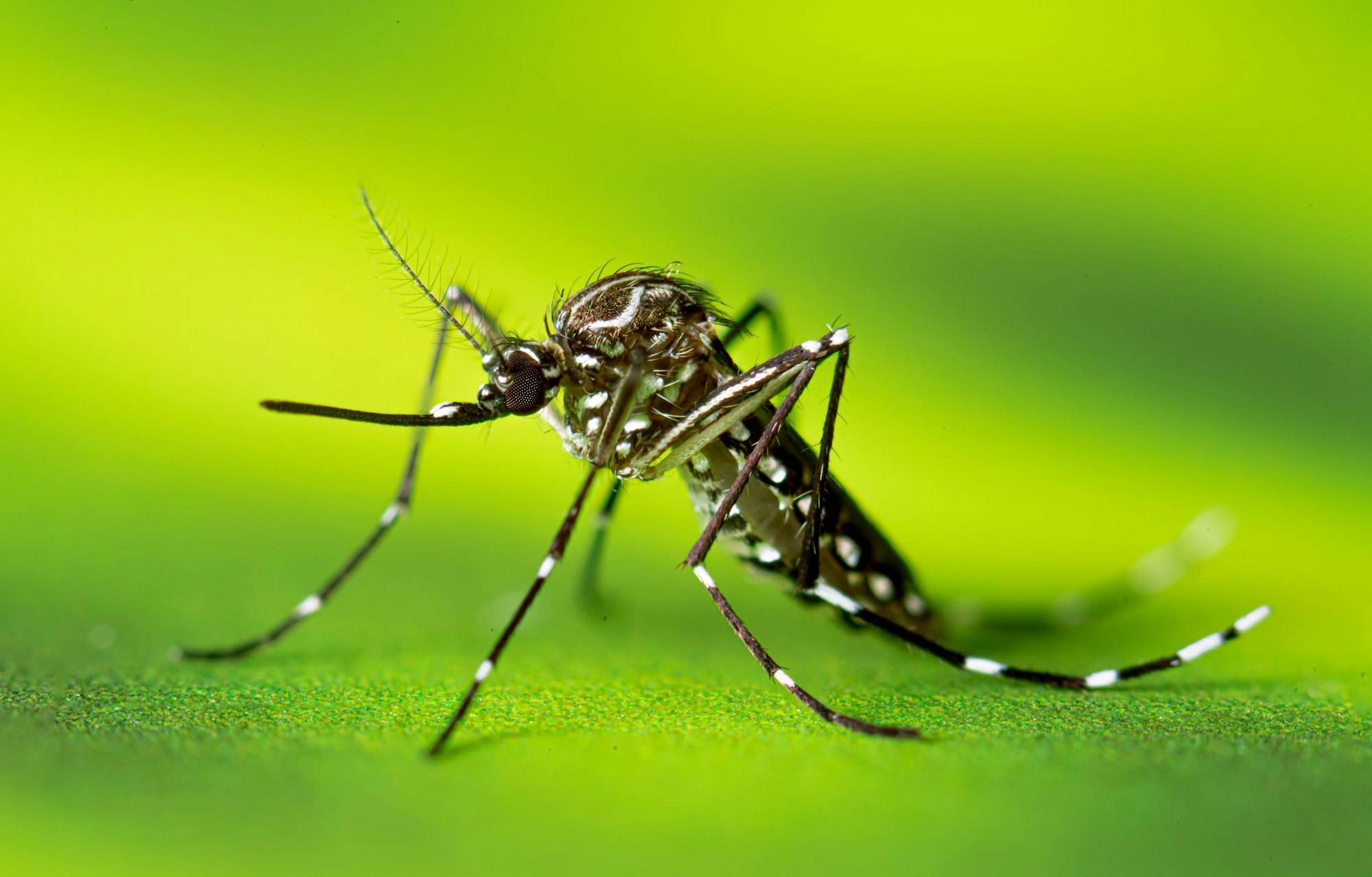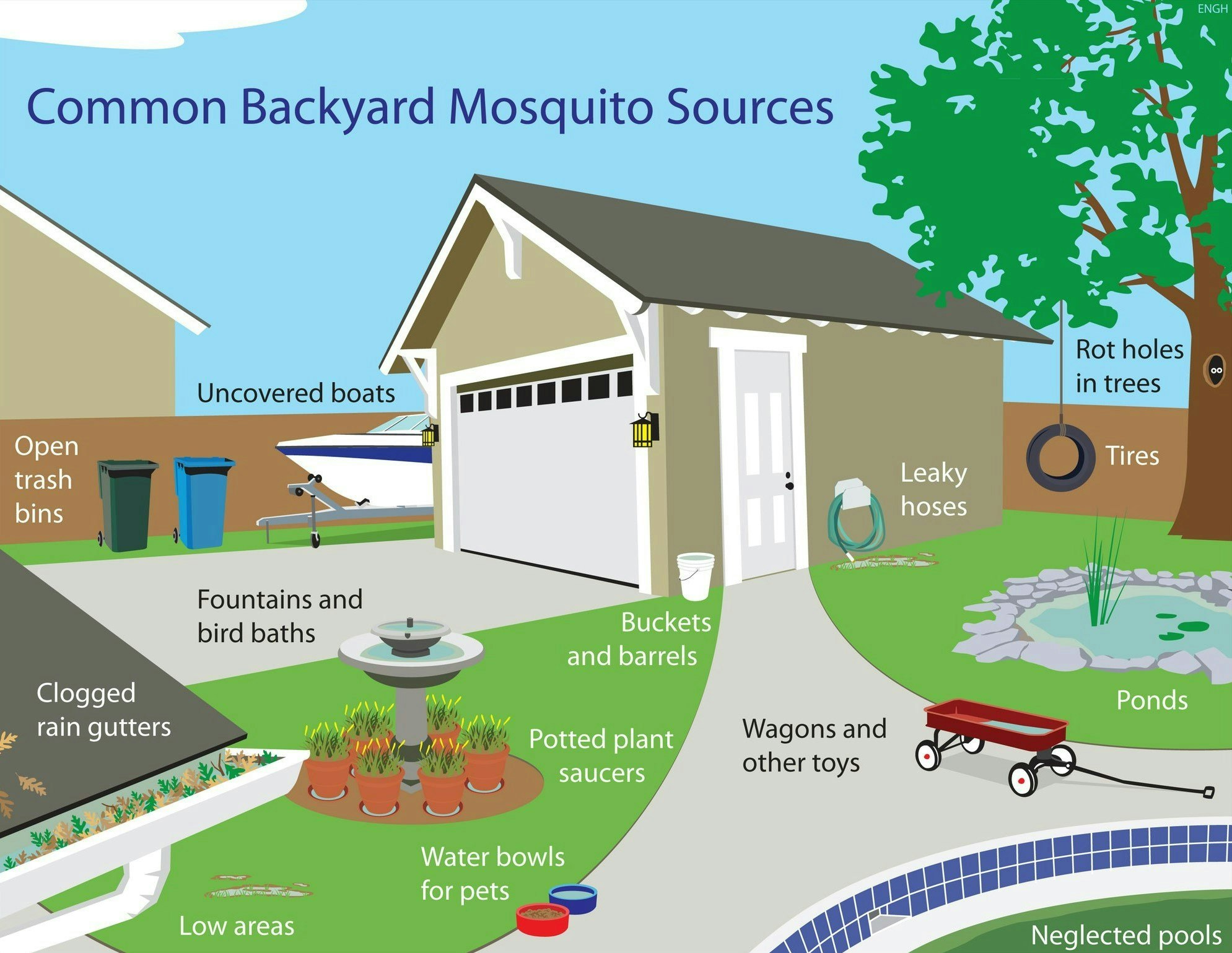Multiple Detections of Invasive Mosquitoes in Alameda County Demand Immediate Action from Residents

October 6th, 2025
Hayward, CA — Within the past two weeks, the Alameda County Mosquito Abatement District (District) has detected Aedes aegypti mosquitoes in Livermore, Fremont, and Pleasanton. Aedes aegypti is a non-native mosquito capable of spreading infectious diseases not typically found in the United States, including dengue, chikungunya, Zika, and yellow fever. District staff are actively inspecting properties in each detection zone and speaking with residents about the importance of removing standing water.
Standing water is essential for mosquitoes to complete their life cycle. Eliminating water is the simplest and most effective way to reduce mosquito populations. Invasive Aedes aegypti mosquitoes are aggressive, daytime biters that can quickly become established in neighborhoods.
The District urges residents and businesses to:
- Report day-biting mosquitoes immediately to the Alameda County Mosquito Abatement District at 510-783-7744. Residents can also send photographs of mosquitoes to acmad@mosquitoes.org
- Remove all sources of standing water,
- Scrub items that hold water with dish soap or a 5% bleach solution,
- Cover openings of sumps, water storage containers, and lawn drains with window screen or a finer mesh material, and
- Allow District staff to access their properties for mosquito breeding inspections.
Fremont Detection
In Fremont, a resident in the neighborhood north of Ardenwood contacted District staff after photographing an Aedes aegypti mosquito. District staff responded within hours, setting traps and inspecting nearby yards. Another Aedes aegypti mosquito was captured, prompting plans for a wide-area larval treatment scheduled for Wednesday, October 8, from 3:00 a.m. to 5:00 a.m., weather permitting.
Residents have been highly cooperative, allowing District staff into their yards and encouraging neighbors to take preventive actions to ensure Aedes aegypti does not establish in their community.
Pleasanton Detection
The most recent detections in Pleasanton occurred in two new areas, one by Creekside Park and another by Amaral Park, far from the 2024 detection zone near the Alameda County Fairgrounds. District staff began inspecting the areas on Monday October 6th and will continue throughout the week to determine if additional Aedes aegypti mosquitoes are present. Depending on findings, a large-area larval treatment may be conducted later in the week.
Livermore Update
District staff have been monitoring Livermore since the first Aedes aegypti detection in early August. The mosquito has been found in several parts of the city, including west of N Mines Rd between Hillcrest and N Mines Rd, and east of N Mines Rd between Brookmeadow Park and South Vasco Rd. Two additional detections were between Las Positas Rd and Patterson Pass Rd. The District has worked with city officials and public safety personnel to raise awareness among residents.
Gaining access to private yards has been more challenging in some neighborhoods. Due to high mosquito numbers in eastern Livermore—between South Vasco Road and East Avenue—the District plans to conduct a wide-area larval treatment on Tuesday, October 7, from 3:00 a.m. to 5:00 a.m., weather permitting.
“The detection of Aedes aegypti in Alameda County late last week underscores how easily this invasive mosquito can take hold if we let it,” said Dr. Eric Haas-Stapleton, Laboratory Director of the Alameda County Mosquito Abatement District. “They thrive in small, overlooked containers of standing water such as flowerpot saucers, buckets, and yard drains. Residents can help prevent their spread by emptying containers weekly, covering stored water tightly, and using mosquito bits (Bti) where water must remain. This week, District staff will be in affected neighborhoods placing traps and inspecting yards. Residents who notice ankle-biting mosquitoes should contact the District right away and allow our uniformed staff access to their property so we can locate and eliminate breeding sites.”
The District appreciates the help of the public to prevent this dangerous invasive mosquito from spreading further. For more information, visit online at www.mosquitoes.org or 510-783-7744.

